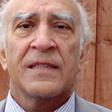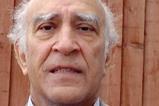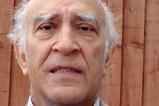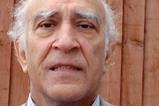Equivocal measures of the NHS to deal with workforce whistleblowers need to be overhauled and replaced with processes based on simple principles of fairness. By Narinder Kapur

The long awaited report of the Independent Inquiry into the treatment of the award winning nurse Amin Abdullah, who burned himself to death after being dismissed on flawed grounds, makes damning criticisms of individuals and of unfair disciplinary processes, which in effect amounted to a “kangaroo court”, riddled with unconscious bias. Reform is all the more urgent because such processes are sometimes used to bully or deter NHS whistleblowers and black, minority and ethnic staff and contribute to low morale amongst the NHS workforce.
On 9 February 2016, not long after he qualified as a nurse, and a few weeks after going through a harrowing dismissal process, Amin Abdullah burnt himself to death outside Kensington. A video of Amin Abdullah’s story, in pictures, words and music, is available here.
The just published Independent Inquiry report by Verita has found:
- Biased, misconceived and flawed investigation of allegations made about nurse Abdullah
- The investigating officer showed lack of integrity in not disclosing that a patient who had complained about nurse Abdullah had also complained about her
- Weak evidence not properly challenged at his disciplinary hearing
- Lack of a proper record being kept of the disciplinary hearing, considered to be “totally unsatisfactory”
- After nurse Abdullah’s suicide, internal review by Imperial Trust branded as “unacceptable” and a “whitewash”
Fundamental changes to how the NHS manages staff include having simple principles of fairness for decision making processes.
Disciplinary panels should be constituted according to PIPE principles – Plurality (more than one decision maker), Independence (some members on the panel external to the employer), Panel training to prevent conscious and unconscious bias and training in principles of investigation (cf. D Simon. (2012). In Doubt. Harvard University Press, and the related website, www.indoubt.net) and relevant Expertise, as related to the specific professional, technical, cultural, language, etc attributes of the staff member in question.
Where an investigation of a member of staff is conducted on a matter that is serious enough to include the possibility of severe discipline or dismissal, the investigation process should be carried out according to these same PIPE principles.
The outcome of hearings should be subject to PRIME principles – ensuring that any punishment is Proportionate, exploring how Remediation could help the individual, carrying out an Impact assessment of any punishment, ensuring that Mediation is fairly and thoroughly explored where there are issues of an alleged breakdown in relationships, and External, expert assessment of these four principles being fairly and robustly implemented.
Action to be taken
What should happen now is clear:
- Apologies from the Department of Health and Social Care, the Care Quality Commission, NHS England, NHS Employers and NHS Improvement, and a critical reflection on why they did not act – if they had acted on repeated concerns made over the years, Amin Abdullah would still be alive today
- What happened to Amin Abdullah has happened to NHS staff up and down the country. Therefore, NHS Improvement together with trusts need to set up independent inquiries into other cases of unfair dismissal and similar management mediated injustices, which have taken place in the NHS over the years
- A major review and overhaul of NHS disciplinary procedures
- Regulatory bodies to review guidance for healthcare professionals who take on management roles, and also examine those cases of dismissal of healthcare staff where similar forms of unjust management procedures were adopted and where members of those regulatory bodies played a key part in the victimisation of staff
- A review of the selection and training of NHS managers, and the establishment of a regulatory system for NHS managers. They remain the only healthcare professionals who are not subject to any form of regulation
- Chief executives should sanction every case of a dismissal of an NHS employee and take ultimate responsibility for dismissals
- I have argued elsewhere for a Staff Support Commission (HSJ, June 2014). This could house a unit to parallel the Healthcare Safety Investigation Branch – a Healthcare Staff Wellbeing Investigation Branch – which could carry out detailed investigations of cases such as deaths of NHS staff that were related to work issues, detrimental treatment of whistleblowers, etc
- A properly funded employment support scheme for sacked whistleblowers and other victimised NHS staff, in the form of three year re-entry fellowships, to help them get back into NHS work again. This would also help to give confidence to those who wish to stand up and speak out, knowing that if they do lose their jobs there would be properly resourced systems in place to support them to get back to work
- It is clear that human factors play a key role both in clinical and staff related events, and the HSIB recognises this by employing staff with applied psychology expertise. Every NHS trust should employ an applied psychologist / human factors specialist whose role would be to advise and help investigate both patient safety and staff events, and also advise on issues such as improving staff morale. The DHSC should itself recognise the importance of psychological factors in the NHS by reinstating the post of chief psychology advisor to advise the secretary of state on such matters
Running a successful NHS could be seen as managing a “triangle” that consists of patients, resources and staff. There has rightly been a major focus on two sides of the triangle – patients and resources. It’s time we did more for the staff side of the NHS triangle.
Amin Abdullah came to the UK with a dream, a dream that turned into a nightmare. We owe it to Amin Abdullah’s memory to immediately implement measures that do not destroy the lives of other dedicated healthcare staff in the future. May Amin’s soul rest in peace.

Topics
- Bullying
- Care Quality Commission (CQC)
- Department of Health and Social Care (DHSC)
- Equality and diversity
- Health Services Safety Investigations Body (HSSIB)
- IMPERIAL COLLEGE HEALTHCARE NHS TRUST
- Legal
- NHS Employers
- NHS England (Commissioning Board)
- NHS Improvement
- Patient safety
- Policy
- Policy and regulation
- Regulation/inspection
- Service redesign
- Staff wellbeing
- Whistleblowers
- Workforce






























No comments yet